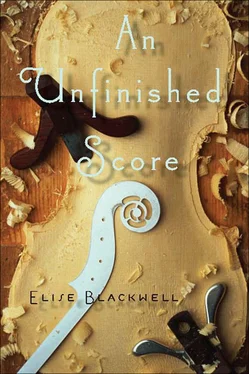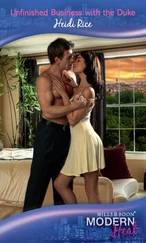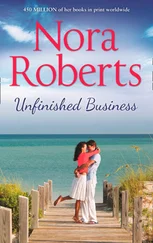She scrolls down to the bottom of the story, which mentions a future public memorial and private funeral arrangements. With a shock that feels like abandonment, she recognizes that she cannot attend the funeral. His wife and son belong there; she does not. Only the most private and hidden forms of grief are open to her, and this is her own fault. Human error .
She reaches for the object she always reaches for — out of habit and love and discipline and commitment and self-loathing and simply because it is, more than anything else in the world, more than anything else her mind holds, what she does and who she is. She begins the only piece that seems possible: her part in Harold in Italy .
It was what she played in her last St. Louis performance, in one of those end-of-season concerts that allow a local principal to show off. Suzanne had already resigned her position after holding it for only three years, admitting that her perfect job was a burden if her husband was miserable and she would never have enough time for a child. But at the end of that night she wanted to stay, to play before large audiences forever, to live within a five-hour drive of the man she already loved. Vibrating with Harold , she grinned before the entire hall, miserable.
She remembers every day of the week of rehearsals, Alex’s stern instructions to the orchestra. Clarity, clarity, clarity. The timbres are separate. Stop that damn blending . But for her there was no scolding, only the one time when he added direction to her copy of Berlioz’s score. Doloroso , he wrote over the beginning of the andante, saying, “Play it like your heart is being squeezed of its blood, so great is your pain. Play it like you are mourning for the beautiful life you might have led but were denied.”
His accent fluctuated between a thud that fell with his words and a faint whisper underneath them, depending on whom he’d been talking to, how much he had been drinking, and — she learned — what effect he wanted to have. When he spoke to her that day his inflections were at their oddest, as though he and not his parents had fled small-town Bavarian poverty.
After those words, there were no instructions for her, only the watching like burning and then nodding, recognition. He saw her. Early on she wondered whether he thought she played perfectly because he already loved her or whether he loved her because she played perfectly. “There may be better violists in the world,” he said later, “but no one plays Harold as beautifully as you do.”
The applause approached wildness and the stage shook with it when Alex, again staring at her, both of them already consumed, turned his open hand for her to stand as St. Louis bid her farewell. Because she wanted to halt time but could not, she experienced the coiled happiness and remorse as though the moment had already passed, as though she was looking back on an earlier self.
Now she plays the thirty bars of the theme without error, but she is quaking and bails out before striking the 6/8 of the allegro.
Even Ben, who finds Berlioz’s Symphonie Fantastique gaudy, admires Harold . He likes the story of Paganini commissioning a viola concerto and then being disappointed in the piece because his Stradivarius would not be a technical superstar but a quiet, melancholic voice. Then, after its triumphant premiere, Paganini allowed Berlioz to believe he’d paid him for the composition when really the money had been merely funneled through him — a ruse that allowed the composer’s friends to keep him fed.
Yet Ben loves the music as well as the story, comprehending that the flamboyant, large-handed Romantic struck an ore of the sublime despite himself. So many musicians accomplish what they do in spite of themselves; it is dangerous to read the biography of a composer you love. More dangerous still to marry one .
In love Berlioz was passionate, misguided, faithful only in his way. Love inspired his music and often drove him feral. The Fantastique swelled from his obsession with the Irish actress Harriet Smithson. Over this object of his desire he wept in public and scrawled pages describing his immense anguish. Once Liszt, Mendelssohn, and Chopin searched the suburbs of Paris for their love-struck friend, convinced that he might kill himself over a woman he had never met and to whom he wrote frightening letters, bitterly jealous of her stage lovers as well as of the men who actually saw her chambers. In the final movement of his symphony, he represented her as a whore at the witches’ Sabbath.
“And so it was,” Alex once told her, taking the pedagogical tone he sometimes used with her, perhaps intentionally calling attention to the difference in their ages, “that sexual obsession resulted in one of Romantic music’s innovations: the wedding of music and story.” In the flawed, brilliant, highly autobiographical Fantastique , the hero thinks of his beloved always in association with a musical theme. Without words, the music tells a story.
After six years of bizarre courtship, occasionally broken by brief fixations on other women, Berlioz convinced Harriet Smithson to marry him. She proved shrewish and hard-drinking. They bickered for more than two decades until her death freed him to marry the mistress he’d taken almost immediately after his wedding, at about the time he composed Harold in Italy : a singer of no real talent.
About two and half years after the St. Louis performance — two and a half years into the four years of her affair with Alex — Suzanne offered herself to a recital series at Saint-Julien-le-Pauvre because Alex would be in Paris. He told her she was too good for the series— Chopin butchers all of them —but when she told him the date, his voice lifted, as close as he ever came to happy.
The church was domed but built to a more human scale than a cathedral. It still smelled of wet stone, as it must have in the twelfth century, when its presence tempted French peasants fresh from the countryside to choose faith amid squalor. She played well to several dozen people, a small audience but one appreciative of the music and a place to sit for two hours on a frozen January night.
The next day she and Alex walked the city, mile after shivering mile, and finally stood in front of Sacré-Coeur, all of Paris spread yellow-gray below them. “Is this why we fought the tourists to come up here?” she asked. He shook his head, and they ambled down through Montmartre, a walk that seemed aimless until they entered the cemetery squashed into the bottom of the hill. As they walked its narrow pedestrian avenues, Suzanne read aloud the names of the families interred in the idiosyncratic mausoleums, some of which looked shiny-new though they were centuries old. She was reciting one such name when Alex hushed her, pointing to a simple black crypt, an oversized coffin sitting on the pale dirt. Suzanne stepped toward it and saw the beaked face of Hector Berlioz etched into the dark marble, his name, the dates of his birth and death.
“This is why we came out to Montmartre,” Alex said.
That night he surprised her again, producing tickets to a concert at the Théatre des Champs-Elysées. As she sat in the art deco cylinder she could feel its history, imagine the rioting audience at the 1913 premiere of The Rites of Spring .
That night’s program was less scandalous and more appreciatively received: a Russian pianist with horrible hair who so delighted the French concertgoers with Schumann, Chopin, and an unusually human Prokofiev that they stamped their feet until he played four encores. Even Alex, who believed the encore destroyed a program’s integrity, clapped loudly, stamped his foot, laughed with Suzanne. “They’re going to have to turn up the houselights,” she said, “before the French ruin this poor guy’s wrists.” But she knew the pianist didn’t mind; what musician doesn’t want to be adored? “Promise me we’ll come back to Paris together,” Alex said, his tone stern and a little alarmed. “I promise,” she said, but it was a lie. It was made a lie by a plane crash in the American Midwest.
Читать дальше












